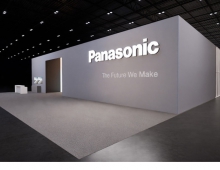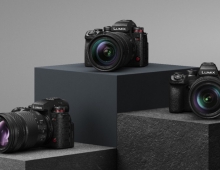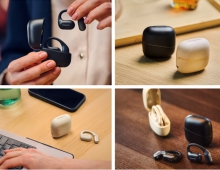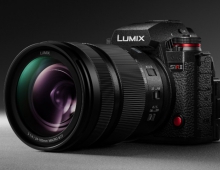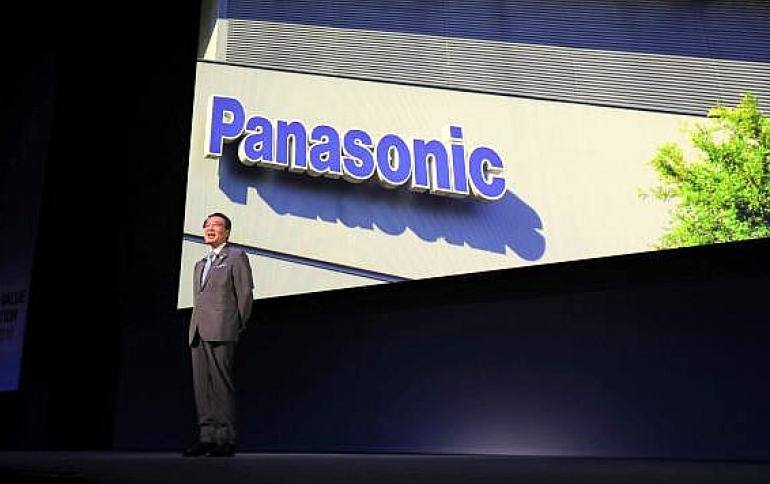
Panasonic Q2 Profit Decreased as a Result of Investment in U.S. Battery Factory
Panasonic on Wednesday reported a 15 percent fall in second-quarter operating profit, weighed down by investment in Tesla's battery plant in Nevada.
Panasonic, the exclusive battery cell supplier for new electric vehicles (EVs) made by Tesla, posted profit of 95.2 billion yen ($840.92 million) for the July-September period, versus 112.7 billion yen a year prior.
The company said that sales increase and improved other income (expenses) such as recording a gain on the sale of land were unable to offset fixed-costs increase and raw material cost hikes.
For the the six months ended September 30, 2018, the company’s consolidated group sales increased by 4% to 4,008.2 billion yen from fiscal 2018 (a year ago), continuing an year-on-year sales increase following the previous year. Domestic sales increased year on year due mainly to favorable sales of automotive-related products and Panasonic Homes Co., Ltd., despite a sales decline for consumer products in
Appliances. Overseas sales increased due mainly to favorable sales of the automotive-related business including Energy and Automotive, electrical construction materials business of Energy Systems, and the electronic component mounting equipment business of Process Automation.
Panasonic’s factory automation business also slowed as a Sino-U.S. trade war made global manufacturers cautious about making fresh investment on equipment.
The Japanese company maintained its profit forecast for the year through March at 425 billion yen, versus a 432.51 billion yen estimate from 20 analysts.
Panasonic has been investing in Tesla’s battery plant as production of mass-market Model 3 cars accelerates. Its $1.6 billion investment to take production capacity to 35 gigawatt hours (GWh) is almost complete, but the business has yet contribute to profit.
Panasonic at 100: Kazuhiro Tsuga Reaffirms Commitment to Consumer
Meanwhile, Panasonic is celebrating the 100th anniversary of its founding with a special week-long event in Tokyo called Cross-Value Innovation Forum 2018. Company President Kazuhiro Tsuga kicked off the event--taking place through November 3rd and expected to be attended by 50,000 visitors--with a keynote speech that focused on the company's strategy of looking forward to its second century through "co-creation" with business partners, customers, and everyday consumers.
Introducing a concept called "Lifestyle Update" business, Tsuga explained that while Panasonic has traditionally been in the business of "upgrading," or improving the lives of individuals through home appliances and consumer electronics meticulously developed to completion, the company is now shifting to a strategy of providing "lifestyle updates." These come from products and services that evolve with the individual end-user's personal preferences and way of life.
Lifestyle updates will come from the use of data on personal lifestyle and consumption habits that are gleaned and applied in real-time.
"When Panasonic was a consumer electronics manufacturer, the company was easy to understand," Tsuga said. "However, on the eve of our Centennial, when we stepped back and took a look at the many things we do now--as a major supplier of batteries for electric vehicles, a provider of solutions for the factory production lines of other companies, and as a key player in a growing number of industries--we realized we no longer knew how to define ourselves."
Tsuga acknowledged that although company performance was proving satisfactory, he realized that more was needed. "We must understand in what way Panasonic can serve society," he said. Tsuga also realized that, despite the broad array of businesses--whether in the home appliance, automotive, factory automation, or other sectors--each one has remained true to the company's original philosophy of enhancing quality of life," he explained.
Tsuga cited examples where the company has aligned with partners to produce results.
One of these business-to-business relationships is already at work, providing quicker service and more choice to customers of China's biggest hot-pot restaurant chain. "Hai Di Lao Hot Pot, which has more than 360 outlets worldwide and some 50,000 employees, is using our robot arms at one of its restaurants in Beijing to automate the food preparation process, and other automated systems are permitting customers to adjust the ingredients whenever they want," he said. Tsuga cited this is an example of a consumer "lifestyle update" that improves customer satisfaction, while also improving worker safety in an environment with boiling liquids.
China is a critical market for Panasonic, and the company holds a unique position in the minds of Chinese entrepreneurs who have turned to the writings of Panasonic founder Konosuke Matsushita for inspiration and the keys to business success. "Panasonic has the distinction of being the only Japanese company invited to join the China Entrepreneur Club," Tsuga said.
Membership has led to an alliance with construction software developer Glodon and Beijing Linkdata Technologies, a battery-focused energy management company, to apply Panasonic's high-performance vacuum insulated glass technology to temporary housing units for construction workers.
Panasonic's position as a maker of a wide variety of systems for the home including lifestyle-related products has led to the HomeX Project, which aims to create new value in daily living through user-experience and user-interface focused design ideally suited to different types of living spaces. "HomeX is always connected with the resident 24/7," Tsuga said. "It is a total information infrastructure that understands what the inhabitant wants by the season, or depending on weather conditions, and it can even call up the right music based on a person's mood."
Tsuga explained that a home should be a living thing, always adapting to change, as should all of the appliances in it. "The days of home appliances becoming obsolete will soon be over," he said. "They must fit with and evolve with the times."

